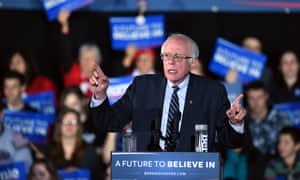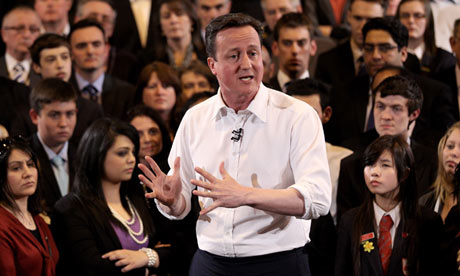Anand B in The Hindu
 The Communist Party of India and its ideology seem to have lost a bit of its sheen in the last three decades, today peeking shyly from the Kerala undergrowth. Time to take to the streets — er, the social media? | WikipediaDecember 26, 1925, was the day the Communist Party of India considers as its foundation day. The party is now 92 years old. There are 84 parties that branched out from this party and follow communism today. This is, however, not about the party leaders or the staunch followers of communist philosophies in the party. This is more about actual communist and socialist workers — people who believe in communism and socialism regardless of their being a member of any affiliated parties.
The Communist Party of India and its ideology seem to have lost a bit of its sheen in the last three decades, today peeking shyly from the Kerala undergrowth. Time to take to the streets — er, the social media? | WikipediaDecember 26, 1925, was the day the Communist Party of India considers as its foundation day. The party is now 92 years old. There are 84 parties that branched out from this party and follow communism today. This is, however, not about the party leaders or the staunch followers of communist philosophies in the party. This is more about actual communist and socialist workers — people who believe in communism and socialism regardless of their being a member of any affiliated parties.
The communist parties have succeeded in alienating themselves and the communist philosophy as a whole from the youth. Sure, the parties have members under the age of 35. But again, this isn’t about the party or its student-body members.
This is about the man (or woman) who works hard every day to earn a living. The man who no longer cares about philosophies or society as a whole. With the advent of technological advances, communism or Marxism has been left behind. Unfortunately, it is not Marx’s fault. He welcomed technology. He never recommended the destruction of the means of production; he asked the workers to seize it for the greater good.
The IT and BPO industry sans unions have completely blocked a section of society — a vibrant section — from the philosophies and, subsequently, the parties too. An industry which attracted a whole generation for over two decades now has been kept away from the Left and this has crippled the spread of the ideology as well as its philosophy and politics greatly.
How did communism grow?
To delve a bit deeper, let us take a look at how communism spread. It did not spread merely through charismatic oratory figures or sectarian ideologies like caste or language. It spread from the bottom up. It spread from the workshops. It spread from the factories. It spread from weavers. It spread from the farmers. It spread in the form of trade unions. It spread in the form of student bodies. It spread based on the success it had in the form of USSR, which went toe to toe with the United States.
This meant a person who was to eventually join the party would first have to be attracted by its ideology and the philosophy. This was achieved by a propagandisation of the benefits one would get as a member of the proletariat as much as the power of the workers’ rights against the exploitation they were subjected to. It was done by apprising the worker of their rights. Grassroots propagandists like Jeevanandam or Jyoti Basu or E.M.S. Namboodiripad, who went on to become leaders, greatly helped in taking this message to the common man.
What changed?
The factors that helped in spreading the ideology largely disappeared during the final decade of the last century.
With the globalisation of the Indian Market, the death of the USSR, and the absence of grassroots propagandist leaders in the league of EMS or Jeevanandam, the party and its ideology have come in for hard times. The current party leaders confining their discourse largely to politics is not helping either. Not to mention, the mass influx of American culture along with the growth of the IT/BPO industry further dented its reach — the youth became more interested in seizing the day than seizing the means of production. And then, when the communists of the country started to set themselves against both globalisation and pop culture, they completely alienated the present generation, and they were forced to retreat to the universities in the north and factories in the States they ruled.
But they do exist. The philosophy, like all others, cannot be killed so long as even one person believes in it — indeed, even if no individual believes in it. The communists, however, are no longer as ideologically relevant or politically dominant as they used to be and should be to keep the social balance. Nor are they spreading the word as effectively as they used to.
The fact that they still limit themselves to talking about farmers and factory workers is ensuring that a young section of society finds communism or socialism an alien concept. Without meandering into the partisan part of it, being unrelatable is not doing the philosophy or the ideology any favours.
The need for communism
So, why bother with rejuvenating a dying movement? Because the need for communism and socialism is now higher than ever. When the Right gets stronger, the Left is needed to balance it out just as the Right balances the Left. Like the force from Star Wars, the balance of power needs to be restored.
On the personal front, the youth no longer are interested in hunger unless it is their own. They are not interested in problems until it affects them. By living each day for itself, we, the youth, have forgotten the lessons the past taught us and ignore the impact that forgetting these lessons can have on the future. Likes, Shares and Retweets are the highest form of response you can get for actual issues from other members of the proletariat today. All their intelligence and ability to understand politics and social structures is being squandered as they spend all of it on pop culture. The politics in House of Cards and Game of Thrones is more interesting than the actual politics that affect them on a day-to-day basis.
Seeing the bigger picture, unchallenged power corrupts. Congress — left of Center under the leadership of Rahul Gandhi — is just not enough. With the currently weak leadership in the party, be it at the regional or national level, Congress is not even a challenge for someone like Modi. As much as we need the aggressive development BJP promises, we also need to have checks and balances politically.
The news channels are not helping. They are giving more coverage to moralistic or mundane controversies (Padmavati, Trump tweets) than actual issues of economic and ecological significance (GST implementation, education sector woes). It is easier to distract the news channels than to distract the youth. Thanks to the TRP race, the current hot issue matters more than the ones that are important to the country as a whole in the long run.
Socialistic and Communist thinking could be the perfect cure for these modern-day ills and help create a future generation that is aware of the hows and whys of the policies that affects them. Taking the thinking to the youth and first-time voters will help the country greatly. The parties that follow Marx are the ones who should take ownership with this. They are better equipped to take this responsibility than anybody else.
What can they do?
Marx talks more about factories in his manifesto than agriculture. Lenin is credited with bringing in farmers into the fold of socialism and communism — he brought in the sickle and made the philosophy relevant to a larger audience.
Instead of limiting themselves to Marx’s writing, they need to evolve, much like Lenin, and reach out to the larger audience on the issue that affects them. They lost a wonderful opportunity during the recession-driven IT layoffs, for instance, to emphasise their philosophical importance.
Just like they went to universities to reach students, went to factories to reach workers and to farms to reach farmers, they need to go where the youth are concentrated today — the social media.
The philosophy needs to go into their handheld device, those we spend more time with than our better halves or parents. It is up to the party to take it there, to them, with a renewed set of issues that can be solved or mitigated by the application of socialism. This cannot involve merely creating an app which echoes the leaders’ political critique of Modi’s policies but also about creating awareness about the philosophy as a whole in a simple and reinvented ways. They also need to acknowledge that the present generation seeks out the trappings of global pop culture to decide which ideas to consume. Therefore, communism needs to outgrow the books and literature that helped propagate the philosophy in its heyday and be more proactive in its outreach.
Failure to evolve will result in extinction. And socialism/communism is one philosophy that needs to exist in our country and survive as a counterbalance for the other side. The ball is in the parties’ court for now, as always. It is up to them to decide on what to do with it, for it decides their future and ours.







